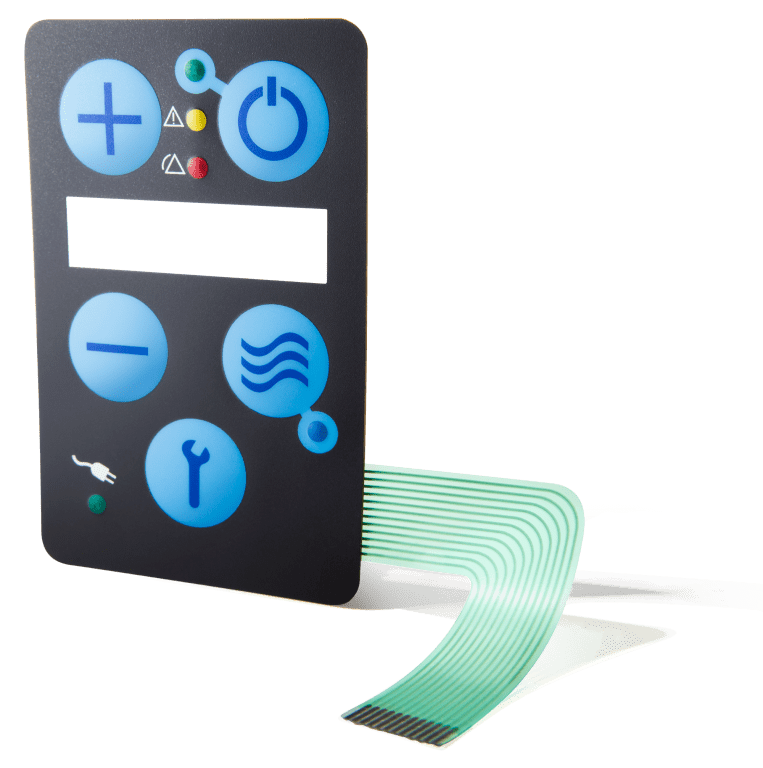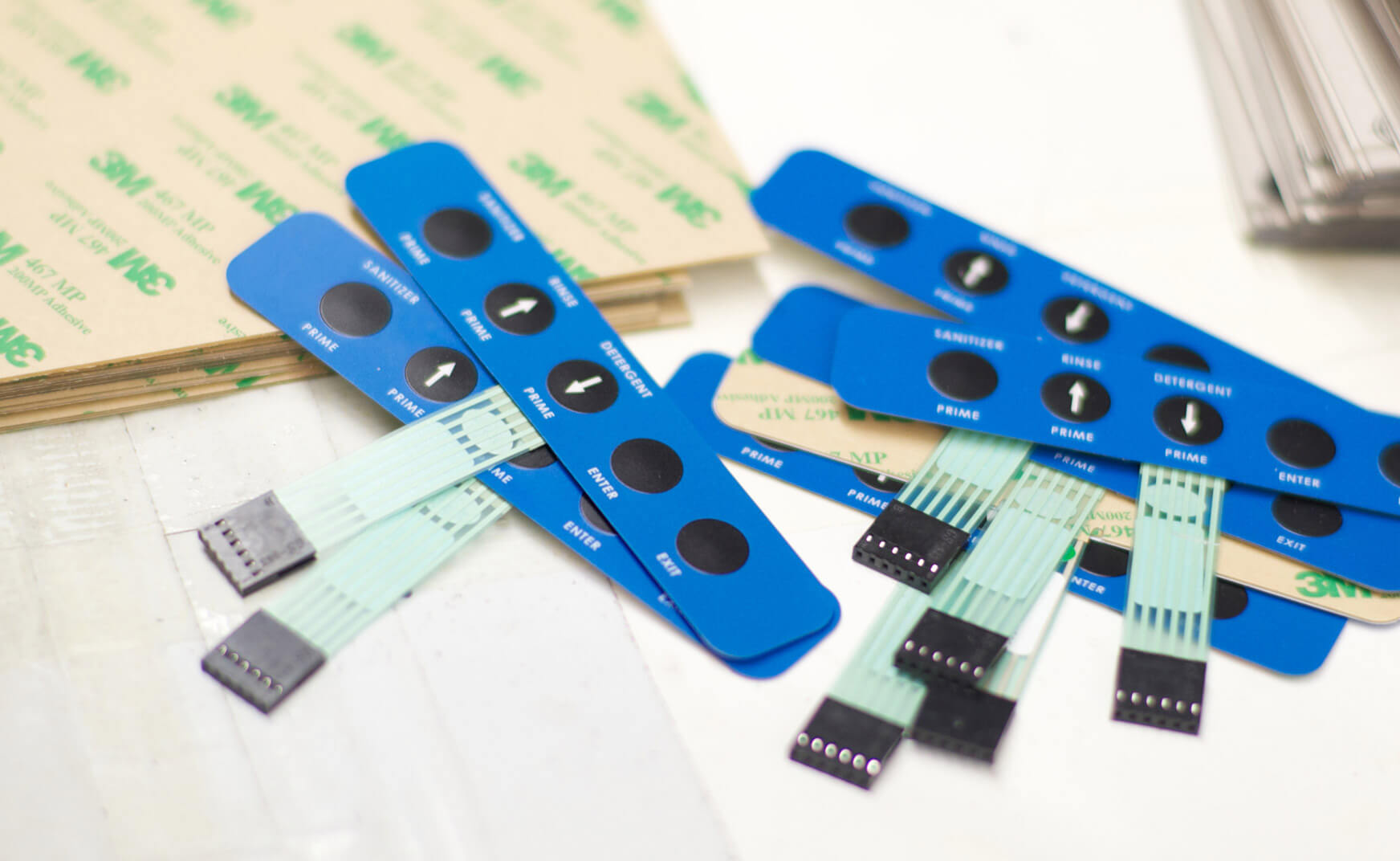Exploring the Manufacturing Process of High-Quality Membrane Switches
Exploring the Manufacturing Process of High-Quality Membrane Switches
Blog Article
Why Membrane Layer Switches Are Necessary for Durable Control Equipment
Membrane buttons play an essential duty in ensuring the resilience and dependability of control systems throughout various markets. Their one-of-a-kind construction permits them to endure challenging ecological variables such as moisture, temperature level extremes, and physical wear. This resilience not just expands the lifespan of the systems they serve yet also lessens upkeep needs. As we explore the multifaceted advantages of membrane buttons, it comes to be evident that their significance goes beyond plain functionality, influencing individual experience and operational efficiency. What further implications do these characteristics hold for the future of control system layout?
Summary of Membrane Layer Switches
Membrane layer switches are functional and trustworthy elements commonly used in numerous digital control systems. The graphic overlay offers both practical and visual design, while the spacer layer makes sure that the switches are triggered just when pushed.
Membrane layer switches are commonly favored in applications needing a portable and lightweight layout, making them suitable for handheld devices, clinical equipment, and commercial equipment. They can be customized to satisfy certain customer requirements and can integrate different attributes such as backlighting, responsive feedback, and several shades. Additionally, membrane buttons are immune to dust, moisture, and contaminants, making them suitable for atmospheres where durability is necessary.
Advantages of Resilience
In numerous applications, the sturdiness of membrane changes offers significant benefits that boost their total performance and reliability. These switches are designed to stand up to harsh settings, making them excellent for usage in requiring problems such as high humidity, extreme temperature levels, and exposure to chemicals. Their robust construction aids to stop damages from physical impact, ensuring long-lasting performance and lessening the demand for constant substitutes.
Additionally, membrane switches are immune to damage, which is essential in applications where frequent communication takes place. This toughness equates to lower upkeep costs, as organizations take advantage of minimized downtime and less solution interruptions. The encapsulated design of membrane switches shields interior components from dust and dampness access, further contributing to their life expectancy (membrane switch).
One more advantage is their ability to keep constant efficiency in time. With a high resistance for mechanical stress, these buttons protect their tactile feedback and electric stability, guaranteeing user satisfaction. Inevitably, the sturdiness of membrane layer switches not just improves functional effectiveness yet likewise cultivates confidence in their integrity, making them a favored choice for control systems throughout different sectors.
Applications in Different Industries
Sturdy control systems employing membrane buttons discover substantial applications across a series of industries, each gaining from the distinct attributes these buttons provide. In the clinical field, membrane layer switches are vital for tools such as patient screens and analysis devices, where reliability and simplicity of cleansing are critical. Their resistance to moisture and pollutants guarantees they keep functionality in clean and sterile environments.
The auto sector leverages membrane layer switches for control panel controls and infotainment systems, where they supply streamlined, low-profile interfaces that enhance customer experience. These buttons are additionally designed to stand up to harsh conditions, consisting of exposure to extreme temperature levels and resonances.
In commercial basics settings, membrane buttons are generally utilized in machinery control panels, offering tactile comments and longevity necessary for high-usage applications. Their ability to resist chemicals makes them suitable for manufacturing environments where spills and impurities are constant.

Consumer electronics, such as kitchen area devices and remotes, likewise utilize membrane switches for their adaptability and cost-effectiveness. In general, the flexibility and robust nature of membrane layer changes make them vital throughout different sectors, ensuring reliable operation and longevity in control systems.
Layout and Visual Appeal
While capability is paramount, the style and aesthetic allure of control systems furnished with membrane buttons play a critical function in user interaction and overall experience (membrane switch). The aesthetic style of these switches can significantly affect user assumption and interaction. A properly designed membrane button improves the attractiveness of the tool, making it much more enticing to users and promoting a link in between the user and the item
Membrane switches over provide a good deal of flexibility in layout, allowing makers to customize graphics, colors, and appearances to line Bonuses up with brand name identity and product looks. Making use of vivid colors and distinct patterns can draw interest, while tactile comments can reinforce the individual's communication with the tool. In addition, the capacity to incorporate LED signs and backlighting into the membrane switch style gives both practical and aesthetic advantages, boosting presence and functionality in various environments.

Enhancing User Experience

Furthermore, membrane layer switches can be customized to incorporate graphical interfaces, enhancing usability by presenting information in a clear and intuitive manner (membrane switch). This customization can include icons, labels, and shade coding that overview customers through complex performances easily. Furthermore, their flexibility permits integration in various environments, ensuring regular efficiency whether in commercial equipment or consumer electronics
The durability of membrane buttons also plays an important function in customer experience. By standing up to severe conditions and expanded usage, these switches reduce the chance of system failures, thus advertising dependability and user self-confidence. Inevitably, the critical use of membrane layer switches over not only elevates capability however also significantly improves individual interaction with control systems, making them a crucial element in their website modern style.
Final Thought

Report this page